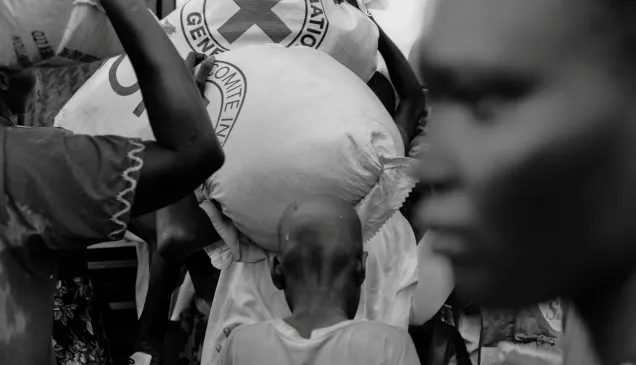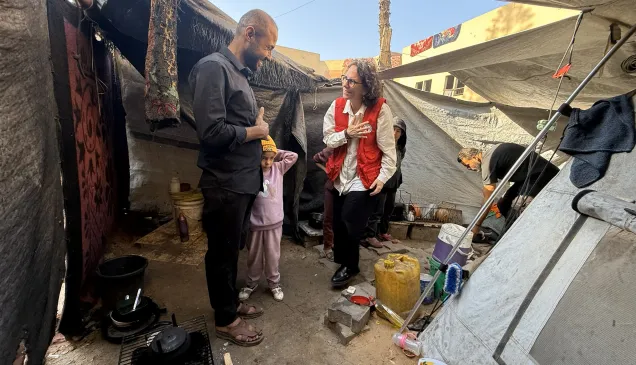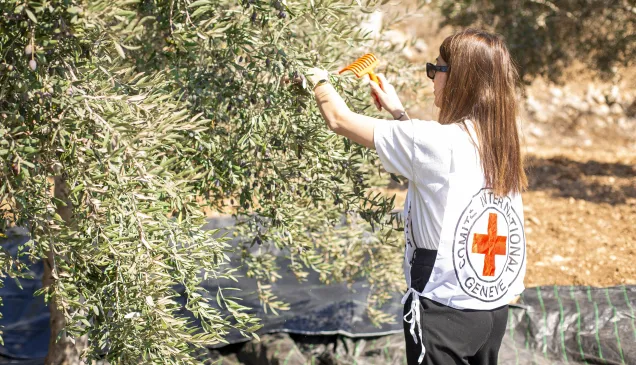Jerusalem – The International Committee of the Red Cross (ICRC) is concerned about the deteriorating health and critical condition of Khader Adnan, a Palestinian detainee in Israel, who has been on hunger strike for almost 50 days.
"We are concerned that his life is at immediate risk," said Jacques de Maio, the head of the ICRC's delegation in Israel and the occupied territories. "Any solution must, however, take into account the necessity of protecting the detainee's moral and physical integrity; it should also be kept in mind that under resolutions adopted by the World Medical Association, a detainee is entitled to choose whether to be fed or receive medical treatment. So, it is essential that a detainee's choice be respected and his or her dignity is preserved."
"His family is anxious about his health," Mr de Maio said. "We urgently request the Israeli authorities to allow them to visit him. It is more than two months since he was granted a family visit. Under the Fourth Geneva Convention of 1949, detainees have a right to be visited by their families. Given the circumstances, permitting his relatives to visit Mr Adnan, without delay, is the right thing to do."
ICRC delegates and medical staff have visited Mr Adnan regularly, since he began his hunger strike, to monitor both his health and his treatment by prison authorities. The ICRC has also been in contact with his family and has passed on his greetings to them.
For further information, please contact:
Nadia Dibsy (English/Arabic/French), ICRC Jerusalem, tel: +972526019148
Sitara Jabeen (English), ICRC Geneva, tel: +41 22 730 24 78 or +41 79 536 92 31



